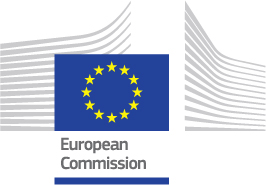Sustainability in the Classroom and Beyond – Engage the Whole School!
Course details
‘Unsustainability’ is the current default for a lot of institutions and lifestyles – how can we turn that around and make ‘sustainability’ the norm? A lot of progress happens in the classroom, and recently, the United Nations and the European Commission identified the whole-school approach as a good way of imparting sustainability to pupils.
This course will help you to get started with a whole-school approach to learning for sustainability, using your classroom as an entry point.
The course will start on 19 September and conclude on 26 October 2022. The estimated workload is 3-4 hours per week.
Duration and workload
Start date: Monday 19 September 2022
End date: Wednesday 26 October 2022
Duration: 5 weeks and 3 days
Workload: 3-4 hours per week, 20-25 hours in total
This course has concluded but the content remains available for browsing!
- You can access the modules by enrolling in the course
- It is no longer possible to take part in the final activity and receive a certificate of completion
- Please note that user support for this course is no longer provided
Target audience
The course is aimed at teachers who wish to make sustainability a more integral part of their classroom work, their school culture and their pupils’ lives. Other school staff may benefit from it, as well. No prior knowledge of the topic is required.
Learning objectives
- Gathering ideas for whole-school activities on sustainability
- Understanding how to make your lessons impactful and avoid ‘greenwashing’
- Learning how to collaborate with the local community toward sustainability
- Reflecting on your school’s vision and checking to what extent you ‘practise what you preach’
- Drafting a pitch to implement – or improve – the whole-school approach in your school
This content is offered by the European Commission. The European Commission is the European Union's politically independent executive arm. It is alone responsible for drawing up proposals for new European legislation, and it implements the decisions of the European Parliament and the Council of the European Union.

Schedule
- Getting Started
- Module 1: Learning for Sustainability – Beyond Recycling and Polar Bears
- Module 2: Pedagogy – Think Global, Act Local
- Module 3: Community – It’s Not (All) About Personal Responsibility
- Module 4: Whole-School Practices – Walking the Walk
- Module 5: Final Assignment


